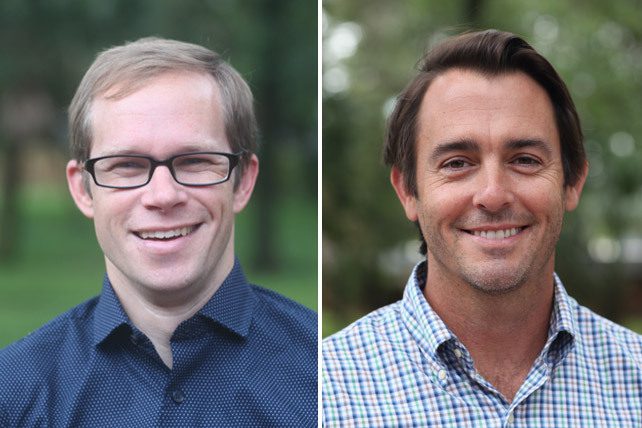“We are currently in the largest and fastest religious shift in the history of our country,” said Jim Davis, speaking last week with his colleague, Michael Graham, on “The Stetzer ChurchLeaders Podcast.” A study Davis and Graham commissioned has found that 40 million adult Americans, 15 million of whom are evangelicals, are no longer attending church, a situation the two describe as “bleak.”
“Not only is the scope of dechurching large, [but] the need to engage the dechurched is urgent,” they write in their new book, “The Great Dechurching: Who’s Leaving, Why Are They Going, and What Will It Take to Bring Them Back?,” which releases Aug. 22. Written with statistician and political scientist Ryan Burge, “The Great Dechurching” summarizes data showing that church attendance in the U.S. “is now in active decline.”
In their conversation about their book with Ed Stetzer and Daniel Yang, Graham and Davis shared what the data shows about who is leaving church and why, as well as the “tremendous hope” they see in the research.
RELATED: Daniel Yang: How People on the Margins Can Help Save the American Church
Jim Davis and Michael Graham on ‘The Great Dechurching’
Michael Graham is the program director for The Keller Center for Cultural Apologetics and associate pastor of administration at Orlando Grace Church. Jim Davis is teaching pastor at Orlando Grace Church, and Graham and Davis also work together on The Gospel Coalition’s “As In Heaven” podcast, where Davis is a host and Graham is the executive director.
Graham and Davis define people as “dechurched” if they used to go to church at least once per month and now go less than once per year. Graham shared that there are four profiles of people within the 15 million American evangelicals who are dechurched.
The first is “cultural Christians,” that is, “people that do not look regenerate from a doctrinal standpoint,” said Graham. For example, only 1% of this group said Jesus was the Son of God.
The second group is “mainstream church evangelicals,” who seem to be highly orthodox in their beliefs and who have only left church within the past three to four years.
The third group is “exvangelicals.” These are people who have “a very high orthodoxy score,” but who are “very allergic to racism, misogyny, church abuse, [and] sexual abuse.” While those in this group are unwilling to return to an evangelical church, they are open to other expressions of faith.
The fourth group is “really interesting,” said Graham. “We didn’t let…the machine learning algorithm see ethnicity,” but “there’s a long shadow in the data.” The “BIPOC church group,” is “100% non-white” and has the “highest income, highest education of any of the groups,” said Graham. It is “very male as well,” with over one million Black men.

